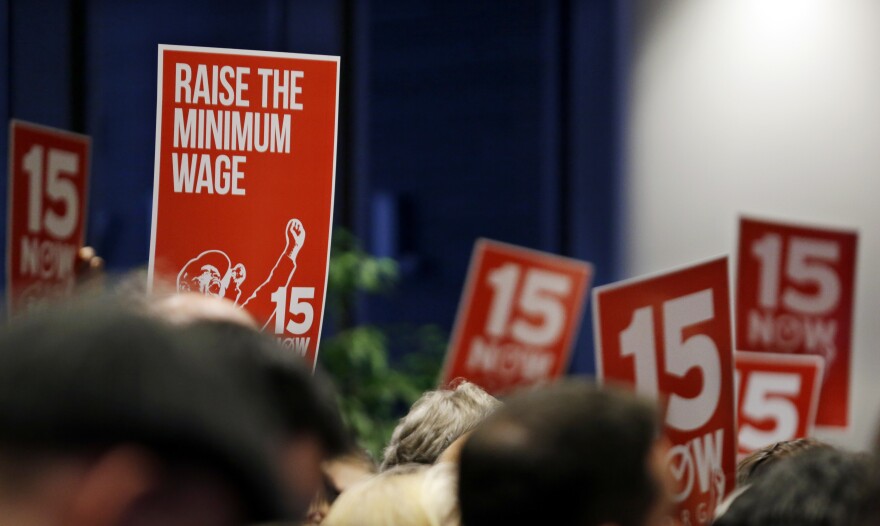The Seattle City Council on Monday unanimously approved an ordinance to raise the city's minimum wage to $15 per hour, the highest in the nation.
Starting on April 1, 2015, the clock will begin ticking for Seattle-based employers to boost their minimum wage workforce up to $15 per hour. Raises will be phased in over the next three to seven years, depending on how large the business is and what other benefits it offers.
The agreement largely reflects what Seattle Mayor Ed Murray’s minimum wage task force hammered out earlier this year, though council members put their stamp on it with several tweaks. The changes included a delayed start date and a lower wage for minors.
Sawant: 'We Did It. Workers Did This'
Council member Sally Clark introduced the legislation, saying President Barack Obama has called the wage gap issue “the defining challenge of our time, making sure our economy works for every working American."
"So today, Seattle answers that challenge," Clark said.
Prior to the vote, council member Kshama Sawant introduced a series of amendments meant to reverse measures that supporters of the 15 Now campaign said watered down the law. These included efforts to make the law take effect in January as originally planned and to eliminate a lower wage allowed for trainees.
Though all of the amendments failed, Sawant, who campaigned on the promise of a higher minimum wage, congratulated the movement's supporters.
“We forced the city establishment to lift the wages of 100,000 low-wage workers in Seattle, to transfer $3 billion to workers at the bottom of the wage scale over the next 10 years. We did it. Workers did this,” Sawant said.
Sawant and her supporters planned twin public events sandwiched around Monday’s council meeting: a protest opposing the amendments they see as weakening the measure, and a celebration declaring victory for low-wage workers and the public movement pushing for the pay raise.
That movement was galvanized by labor-backed fast food worker protests, the narrow victory of a minimum wage hike in the city of SeaTac and the election of Sawant, a Socialist, to the city council.
Sawant credited that movement with “forc[ing] business and Seattle’s political establishment to act.”
'I Don't Want To Work Until I Die'
A number of workers testified at the council meeting prior to the vote. Among them was Rihana Martinson, who says she earns $9.61 an hour at Target.
“And I work very very hard for it,” Martinson told the crowd in council chambers, adding a wage of $15 an hour would allow workers like herself to afford basic necessities.
“Rising housing costs are only part of the problem,” she said. “Things like health care, things like being able to afford new shoes before our shoes fall apart, being able to go to the dentist if we get a cavity, without worrying about it completely destroying our lives."
Martinson said she is worried about her elderly mother having to work until the day she dies. “And I want to be able to take care of her, and I don’t want to work until I die, either. I’d like to be able to save money for retirement or even for if something happens to me, so that I don’t end up on the street.”
International Franchise Association To File Suit
Just minutes after the vote on Monday, the International Franchise Association said it planned to file a lawsuit against Seattle for the decision it called "unfair, discriminatory and a deliberate attempt to achieve a political agenda at the expense of small franchise business owners."
The IFA, in a statement, said the decision “would force the 600 franchisees in Seattle, which own 1,700 franchise locations employing 19,000 workers, to adopt the full $15 minimum wage in three years while most other small business owners would have seven years to adopt the $15 wage."








